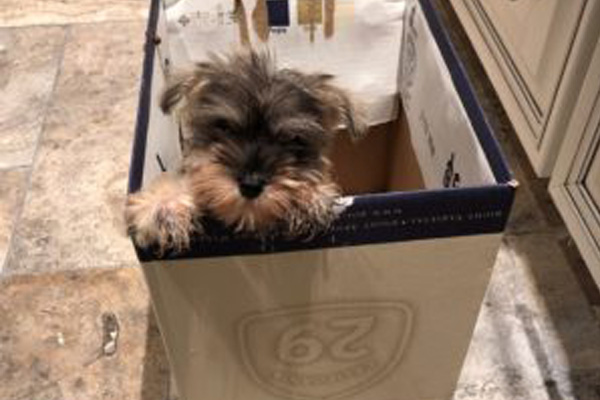
Customers who bought puppies and kittens from a Hartsdale pet store believed they had selected animals that were healthier and of higher quality than most stores offer, the New York Office of Attorney General says, because the store promoted them as “home-raised” by “certified breeders.”
“Our puppies and kittens are home-raised and responsibly-bred for temperament and good congenital health,” Westchester Puppies & Kittens Inc. claimed on its website and Instagram page.
In fact, according to a settlement with New York Attorney General Letitia James, many of the animals were sick and had been bred in puppy mills and large-scale kitten kennels.
The state fined the pet store $7,500, April 29, and CEO Deborah Koehler admitted to no wrongdoing but agreed to remove false and deceptive advertising from the store”™s website and Instagram page.
Westchester Puppies & Kittens has been in business since 2010, is licensed by the state Department of Agriculture and Markets, and operates at 26 South Central Ave., Hartsdale. It sold about 317 puppies and 274 kittens in 2017.
The attorney general received 30 complaints from 2015 to 2018 about the store”™s advertising and marketing practices and the sale of animals sick with kennel cough, giardia, distemper and parvovirus. The Department of Agriculture and the New York Better Business Bureau received similar complaints, according to the settlement.
The pet store resolved some of the complaints by taking back animals, refunding the customers or reimbursing veterinarian expenses.
Four days before the settlement was signed, for example, the store agreed to pay a Scarsdale couple $14,675.
Seth and Margreta Morgulas bought a miniature schnauzer puppy for $2,889. Their children named him Count Otto Morgulas.
Four days before the settlement was signed, for example, the store agreed to pay a Scarsdale couple $14,675.
Count Otto was hospitalized for 10 days and died on Feb. 5, from acute pneumonia.
In the state”™s investigation, an undercover investigator posed on April 4 as a customer interested in buying a puppy.
What did the store mean by “home raised” and “certified breeders?” the investigator asked.
“The salesperson answered, ”˜home-raised puppies are hobby breeders, which means they are small operations usually having one or two litters a year.”™” She said none of the dogs were from puppy mills. “Certified breeder” means they are licensed by the federal Department of Agriculture (USDA) and “the breeding operations are inspected and regulated by the government.”
The state Department of Agriculture found critical deficiencies at Westchester Puppies & Kittens in 2017 and 2018. Some puppies that were treated for rabies were not vaccinated, the settlement states. Animals with nasal discharge, upper respiratory infections or kennel cough were occasionally housed together, “permitting nose-to-nose contact and thereby exposing the animals to the other animal”™s illness.”
The attorney general investigators analyzed 32 of the 156 dog and cat breeders that supplied the pet store. More than half of the kennels housed dozens of adult dogs and cats for breeding.
Some of the breeders had been cited repeatedly by the USDA for maintaining poor conditions. The owner of Kuddly Kritters in Atkins, Nebraska, for example, has been fined many times for “failing to meet basic humane conditions for animals,” the settlement states.
Moreover, the state says, there is no such thing as a “USDA approved breeder.” The license merely means that the breeder operates on a commercial scale and may sell puppies or kittens to brokers or pet stores. Small-scale breeders do not qualify for the license.
The attorney general concluded that the pet store”™s claim that its animals were “responsibly bred for temperament and good congenital health,” and its boasting of “certified breeders” were deceptive and misleading.
The settlement notes that the store cooperated fully with the investigation by providing documents, removing the objectionable boasts on its website and Instagram page, and agreeing to increase employee training.
The settlement requires the store to cease misrepresenting the quality and health of its animals, the quality of the breeders and kennels and the sources of its animals.
The store must conspicuously post notices near the cages of puppies and kittens offered for sale, about how to learn the source and veterinary treatment of the animals.
Though Koehler did not concede any wrongdoing, she agreed that the store would not make “any public statement denying, directly or indirectly, any finding” in the settlement.
The investigation and settlement were handled by Sandra Giorno-Tocco, an assistant attorney general, consumer fraud representative John Katzenstein and investigator Michael Christian.
















